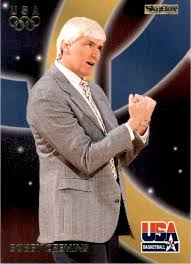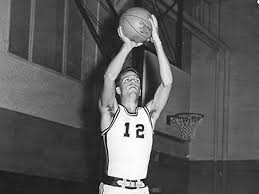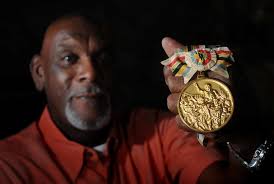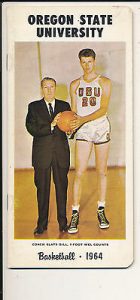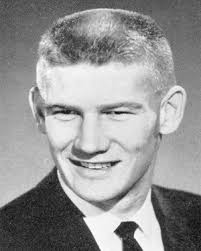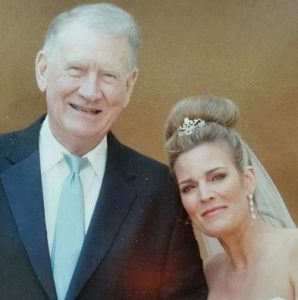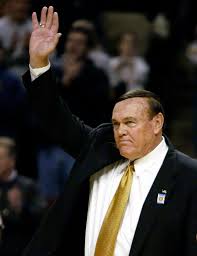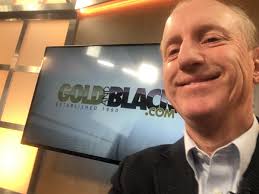The NBA Finals date back to 1947 (when they were known as the Basketball Association of America Finals) and the very 1st NCAA tourney was held in 1939. Olympic basketball competition is even older: it debuted as a demonstration event in 1904 and the men’s version became a medal sport in 1936, with the women finally getting their chance to go for the gold in 1976. The United States has dominated Olympic basketball competition from the start: the men have won 15 gold medals in the 18 tournaments they have participated in during the past 84 years, while the women have won 8 gold medals in the 10 tournaments in which they have competed during the past 44 years. Those of you who were looking forward to the 2020 Olympics opening ceremonies in Tokyo on July 24, 2020 will have to wait an extra 364 days, as the coronavirus caused a postponement until July 23, 2021. Due to the absence of college basketball since mid-March, HoopsHD’s Jon Teitel decided to fill the void by trying to interview as many prior Olympic players/coaches as possible so that you have something to read this summer while not watching the Summer Games. We continue our coverage by chatting with Bobby Cremins about helping lead team USA to a gold medal in 1996. Today is his 73rd birthday so allow us to be the 1st to wish him a happy 1!
The 1996 Olympics took place in Atlanta: was there extra pressure for team USA to win it all since they were the “home team”? We never felt any pressure until the championship game against Yugoslavia. It was a close game for a while until we busted it open. We were certainly expected to win and the foreign teams were not supposed to be good enough to beat us but you got the sense that they were getting better. Russia was divided back then, as was Yugoslavia, which really hurt them.
The team was led by Hall of Fame coach Lenny Wilkens: what made him such a great coach, and what was the most important thing that you ever learned from him? As a college coach I spent much of my time watching. Lenny let them play and was not a control freak, which all of the guys respected. There were some rumors of partying going on every night until 5AM so he had a talk with the guys and explained that they had to take it seriously.
Even though Don Nelson’s “Dream Team II” won the 1994 World Championships with a winning margin of more than 37 PPG, their style of taunting/intimidating their opponents led USA Basketball Selection Committee President CM Newton to vow that the 1996 Olympic team would be “a squad with character, not characters”: were there any concerns about having a team with so many new guys who had not played in 1992 or 1994? No: I had not heard about those concerns. We had a high-character team in 1996.
They were nicknamed “Dream Team III” and included 5 players from the original Dream Team (Charles Barkley/Karl Malone/Scottie Pippen/John Stockton/David Robinson): how important was it to have 5 guys who had already won a gold medal? I thought that it was very important. Stockton/Malone together was a no-brainer since they were teammates in Utah. I knew Robinson from the 1986 World Games and knew Barkley from working with Nike.
You were 1 of 3 assistant coaches along with Clem Haskins/Jerry Sloan: how did you get the job, and how did you all decide who was going to do what? I was Lute Olson’s assistant at the World Games in 1986. I was at the Final 4 one year and going down an escalator when Newton saw me and said he needed me to coach a world qualifying team in Mexico City. We trained for a few days, got upset in Mexico City, and after the game Newton and Dave Gavitt met me in the hotel bar and said we needed to finish 3rd in order to qualify for the 1988 Olympics. USA Basketball started including college coaches in 1992 with guys like PJ Carlesimo/Mike Krzyzewski, which is how Clem Haskins/I got picked in 1996. Clem and I knew our place: Lenny/Jerry knew the NBA and we did not so I did whatever Lenny told me to do. The 4 of us would go to dinner together every night, then Lenny/Clem would walk back to the hotel and Jerry/I would go have a drink at a bar. My 1 mistake was asking Lenny 1 day if he wanted me to officiate, and he said that would be a great idea. It turned out to be 1 of the worst decisions in my life: even in a scrimmage the players’ pride was on the line. Malone almost took my head off because he thought that I was giving Barkley all the calls and I had to get Jerry to protect me. We were in Orlando when they finally brought in some international officials: I felt like the weight of the world was off my back, especially after Karl started yelling at 1 of the international refs on the 1st day! I was a bit of a gofer (including tasks like getting tee times for the players) but I enjoyed it. We were like a rock band that was worshiped everywhere we went: I was along for the ride and just tried not to screw it up.
I just saw a team photo:  (photo credit: clutchpoints.com)
(photo credit: clutchpoints.com)
who on earth came up with the shirts that you had to wear, and did they look that bad in person?! We took a lot of pride in wearing USA on our chests. That is when we all came together and realized that we were representing our country: it was serious stuff. We knew that we had the talent to win the gold medal and the only thing that could beat us was ourselves. We met famous people every day such as Nelson Mandela. The bombing was also significant: we were across the street in the hotel but did not hear it go off. Someone called my room to make sure I was okay and a couple of days later the team gathered to meet the daughter of 1 of the bombing victims. They talked to her and it was a beautiful thing to see: I was really proud of them.
In your 133-70 win over China you set a record for the most PTS ever scored by a US Olympic basketball team: was it just 1 of those scenarios where every shot your team put up seemed to go in because everyone was “in the zone”? Not really: China was just not that good and we overpowered them. When we marched in the opening ceremonies and reached the place where we would stand everyone mobbed the players for their autographs. China was in a bit of shock and I felt bad for them: it is what I would call a mismatch.
In the gold medal game against Yugoslavia you only had a 1-PT lead with 14 minutes left before cruising to a 95-69 win: what are your memories of the crowd (an Olympic men’s basketball record 34,600), and what did it mean to you to win a gold medal? Shaq was not guarding their big man so they just stayed outside and shot threes and the score got a little uncomfortable. Lenny made a great move after deciding to go small. Yugoslavia was playing a zone defense and taking away Shaq’s inside game so we put in Mitch Richmond/Reggie Miller, moved Pippen to the 4 and put David at the 5. It worked to perfection because Pippen was tremendously quick on the baseline. The big lineup with Shaq/Karl/Olajuwon was just not working that day. Mitch/Reggie were unbelievable outside shooters so we got up big and then relaxed a bit. David was a great shooter and Penny also had a good game. It was unbelievable to see that many people all cheering “USA, USA”. Assistant coaches did not get medals so we were not even part of the ceremony but that did not bother me.
You faced several legendary players during your 8 wins: which opponent impressed you the most (Vlade Divac/Andrew Gaze/Toni Kukoc/Arvydas Sabonis/Oscar Schmidt)? Oscar. I had coached against him in the qualifying games so he was a little older by 1996 but was still a great player. The other guys you mentioned were also good but none of them were good enough to carry their team. We were favored by 50 PTS in every single game. I have known Krzyzewski a long time and he is a great coach…but even he had a couple of games where he was feeling some pressure.
Team USA has not lost a game since winning the bronze medal in the 2004 Olympics: do you think that they will ever lose again, and do you think that they should go back to assembling the team by using college players? It is too late to go back to college players. I hated it when they changed to pro players but now it is pro all the way. There is no doubt in my mind that some foreign teams could beat a team of college players now. If an international team can put a few NBA players together it might be a different ballgame and in 1 game anything can happen.

